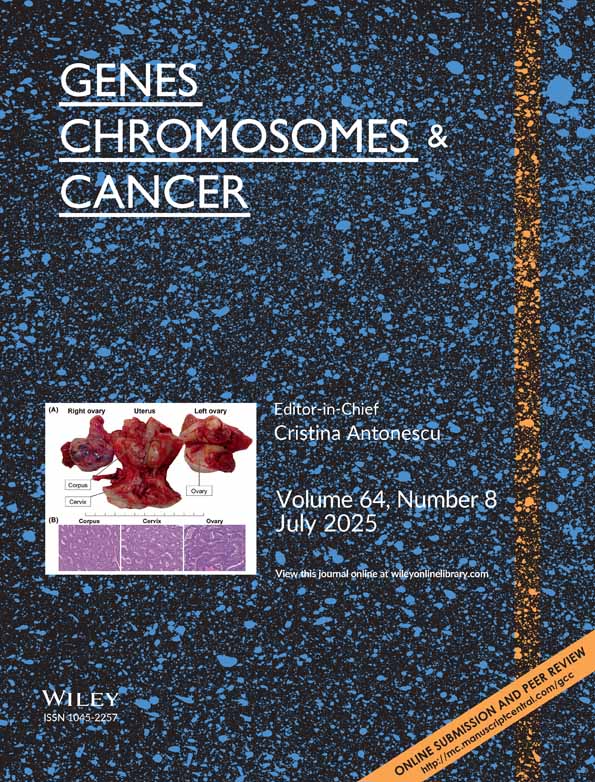Unclassified variants identified in BRCA1 exon 11: Consequences on splicing
Abstract
Numerous mutations identified in breast/ovarian cancer families occur in splice sites of the BRCA1 gene. Splicing can also be disrupted by mutations occurring in exonic splicing enhancer (ESE) sequences. It is important to identify those mutations among the large number of nontruncating sequence variants that are identified during molecular diagnosis, as this could help to classify some of them as cancer predisposing. Several software programs have been designed to identify ESEs and can therefore be used to predict the outcome of genetic variation. However, it is not known whether these predictions are relevant in the case of BRCA1 exon 11 (3.4 kb). In this study, we assessed the consequences on splicing of 108 exon 11 variants identified in French breast/ovarian cancer families, most of them predicted to alter putative ESEs, and of nine variants located in the exon 11 alternative donor splice site. We employed a BRCA1 minigene consisting of exon 10 to 12, into which we introduced separately each of the variants to be tested. RNA was analyzed by RT-PCR after transient transfection of the resulting minigenes. None of the tested variants was found to dramatically alter splicing through disruption of an ESE. However, we identified several variants in the alternative donor splice site that are likely to be of biological significance as they appear to favor the expression of BRCA1-Δ11b over that of the full-length transcript. The results of this study will be of value to classify BRCA1 exon 11 variants of unknown significance. This article contains Supplementary Material available at http://www.interscience.wiley.com/jpages/1045-2257/suppmat. © 2008 Wiley-Liss, Inc.




